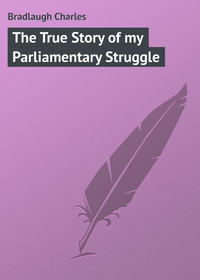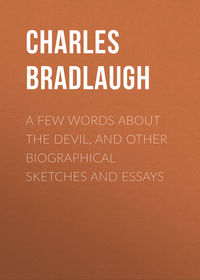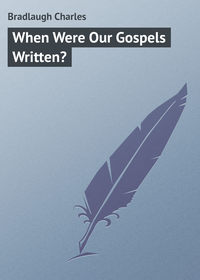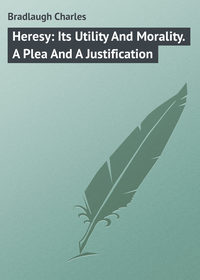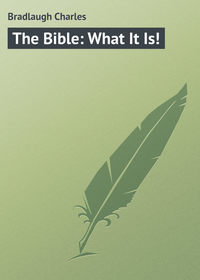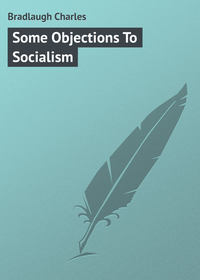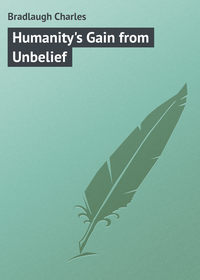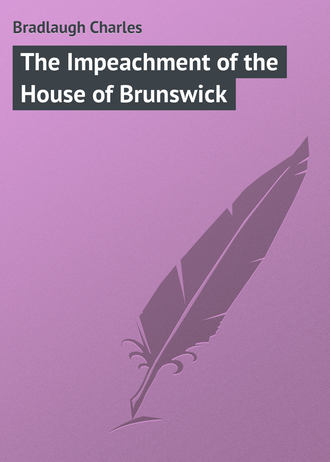
The Impeachment of the House of Brunswick
An extract, giving Lord Brougham's summary of George III's life and character, may, we think, fairly serve to close this chapter: "Of a narrow understanding, which no culture had enlarged; of an obstinate disposition, which no education perhaps could have humanized; of strong feelings in ordinary things, and a resolute attachment to all his own opinions and predilections, George III. possessed much of the firmness of purpose which, being exhibited by men of contracted mind without any discrimination, and as pertinaciously when they are in the wrong as when they are in the right, lends to their characters an appearance of inflexible consistency, which is often mistaken for greatness of mind, and not seldom received as a substitute for honesty. In all that related to his kingly office he was the slave of deep-rooted selfishness; and no feeling of a kindly nature ever was allowed access to his bosom whenever his power was concerned."
CHAPTER V. THE REIGN OF GEORGE IV
The wretched reign of George IV. commenced on the 30th January, 1820. Mr. Buckle speaks of "the incredible baseness of that ignoble voluptuary who succeeded George III. on the throne." The coronation was delayed for a considerable period, partly in consequence of the hostility between the King and his unfortunate wife, and partly because of the cost. We find the Right Hon. Thomas Grenville writing of the coronation: "I think it probable that it will be put off, because the King will not like it unless it be expensive, and Vansittart knows not how to pay for it if it is." Generous monarchs, these Brunswicks! Thousands at that moment were in a state of starvation in England, Scotland, and Ireland. Lord Cassilis writes: "There seems nothing but chaos and desolation whatever way a man may turn himself… the lower orders existing only from the circumstance of the produce of the land being unmarketable… The weavers are certainly employed, but they cannot earn more than from six to eight shillings a week. Such is our state." When the coronation did ultimately take place, some strange expenses crept in. Diamonds were charged for to the extent, it is said, of £80,000, which found their way to one of the King's favored mistresses. The crown itself was made up with hired jewels, which were kept for twenty-one months after the coronation, and for the hire of which alone the country paid £11,000. The charge for coronation robes was £24,000. It was in consequence of Sir Benjamin Bloom-field having to account for some of the diamonds purchased that he resigned his position in the King's household. Rather than be suspected of dishonesty, he preferred revealing that they had reached the hands of Lady Conyngham. Sir George Naylor, in an infamously servile publication, for which book alone the country paid £3,000, describes "the superb habiliments which his Majesty, not less regardful of the prosperity of the people than of the splendor of his throne, was pleased to enjoin should be worn upon the occasion of his Majesty's sacred coronation."
Sir William Knighton declares that on the news of the King's death reaching the Prince Regent, "the fatal tidings were received with a burst of grief that was very affecting." The King had been mad and blind and deaf for ten years, and the Queen, years before, had complained of the Prince's conduct as unfilial, if not inhuman. With the Prince Regent's known character, this sudden burst of grief is really "very affecting."
On the 23d of February, London was startled with the news of what since has been described as the Cato Street Conspiracy. The trial of Arthur Thistlewood and his misguided associates is valuable for one lesson. The man who found money for the secret conspirators, and who incited them to treason and murder, was one George Edwards. This Edwards was well described by one of the journals of the period, "as neither more nor less than the confidential agent of the original conspirators, to hire for them the treasons they have a purpose in detecting." By original conspirators were meant Lord Castlereagh and Lord Sidmouth. In the House of Commons, Mr. Alderman Wood moved formally, "That George Edwards be brought to the bar of the House on a breach of privilege. He pledged himself, if he had this incendiary in his hands, to convict him of the crimes imputed; he hoped he had not been suffered to escape beyond seas; otherwise there were honorable gentlemen who were in possession of him, so that he might be produced" – meaning by this that he was kept out of the way by the Government. "He regarded him as the sole author and contriver of the Cato Street plot. It was strange how such a man should be going about from public house to public house, nay, from one private house to another, boldly and openly instigating to such plots; and, in the midst of this, should become, from abject poverty, suddenly flush with money, providing arms, and supplying all conspirators." Mr. Hume seconded the motion. "It appeared by the depositions, not of one person only, but of a great many persons, that the individual in question had gone about from house to house with hand-grenades, and, up to twenty-four hours only preceding the 23d of February, had been unceasingly urging persons to join with him in the atrocious plot to assassinate his Majesty's Ministers. All of a sudden he became quite rich, and was buying arms in every quarter, at every price, and of every description; still urging a variety of persons to unite with him. Now, it was very fitting for the interest of the country, that the country should know who the individuals were who supplied him with the money."
As a fair specimen of the disposition of the King in dealing with his Ministry, I give the following extract from a memorandum of Lord Chancellor Eldon, dated April 26th, 1820: "Our royal master seems to have got into temper again, so far as I could judge from his conversation with me this morning. He has been pretty well disposed to part with us all, because we would not make additions to his revenue. This we thought conscientiously we could not do in the present state of the country, and of the distresses of the middle and lower orders of the people – to which we might add, too, that of the higher orders. My own individual opinion was such that I could not bring myself to oppress the country at present by additional taxation for that purpose."
On the 23d of March, Henry Hunt, John Knight, Joseph Johnson, Joseph Healey, and Samuel Bamford were, after six days' trial at York, found guilty of unlawfully assembling. Lord Grenville feared that, if acquitted, Peterloe might form a terrible bill of indictment against the Ministry. His Lordship writes on March 29th, to the Marquis of Buckingham: "It would have been a dreadful thing if it had been established by the result of that trial that the Manchester meeting was under all its circumstances a legal assembly." His Lordship knew that the magistrates and yeomanry cavalry might have been indicted for murder had the meeting been declared legal. Sir C. Wolseley and the Rev, J. Harrison were at this time being prosecuted for seditious speaking, and were ultimately found guilty on April 10th. In May the state of the country was terrible; even Baring, the Conservative banker, on May 7th, described the "state of England" to a full House of Commons, "in the most lamentable terms." On the 8th we find Mr. W. H. Fremantle saying of the King, "His language is only about the Coronation and Lady Conyngham [his then favorite sultana]; very little of the state of the country." Early in June, it being known that Queen Caroline was about to return to England, and that she intended to be present at the Coronation, the King offered her £50,000 a year for life to remain on the Continent, and forbear from claiming the title of Queen of England. This Caroline indignantly refused. The Queen's name had, by an order in Council, and on the King's direction, been omitted from the Liturgy as that of a person unfit to be prayed for, and on the 6th of July a bill of pains and penalties was introduced by Lord Liverpool, alleging adultery between the Queen and one Bartolomeo Bergami. To wade through the mass of disgusting evidence offered by the advisers of the King in support of the bill is terrible work. It seems clear that many of the witnesses committed perjury. It is certain that the diplomatic force of England was used to prevent the Queen from obtaining witnesses on her behalf. Large sums of the taxpayers' money were shown to have been spent in surrounding the Princess of Wales with spies in Italy and Switzerland. Naturally the people took sides with the Queen. To use the language of William Cobbett: "The joy of the people, of all ranks, except nobility, clergy, and the army and the navy, who in fact were theirs, was boundless; and they expressed it in every possible way that people can express their joy. They had heard rumors about a lewd life, and about an adulterous intercourse. They could not but believe that there was some foundation for something of this kind; but they, in their justice, went back to the time when she was in fact turned out of her husband's house, with a child in her arms, without blame of any sort ever having been imputed to her. They compared what they had heard of the wife with what they had seen of the husband, and they came to their determination accordingly. As far as related to the question of guilt or innocence they cared not a straw; they took a large view of the matter; they went over her whole history; they determined that she had been wronged, and they resolved to uphold her."
On the 6th of August, the Duchess of York died. Dr. Doran thus writes her epitaph: "Her married life had been unhappy, and every day of it was a disgrace to her profligate, unprincipled, and good-tempered husband."
In the month of September Lord Castlereagh was compelled to admit that the expenses incurred in obtaining evidence from abroad, against the Queen, had been defrayed out of the Secret Service money. The trial of Queen Caroline lasted from the 17th of August until the 10th of November, when, in a house of two hundred and seven peers, the Queen was found guilty by a majority of nine votes. On this, Lord Liverpool said that "as the public sentiment had been expressed so decidedly against the measure," he would withdraw the bill. Amongst those who voted against the Queen, the names appear of Frederick Duke of York and William Henry Duke of Clarence. They had been most active in attacking the Queen, and now were shameless enough to vote as her judges. While the trial was proceeding, the Duke of York's private conversation "was violent against the Queen." He ought surely, for very shame's sake, this Prince-Bishop, to have remembered the diamonds sent by the King his father to Princess Caroline Amelia Elizabeth, of Brunswick. Being the bearer of the jewels, his Royal Highness the Duke of York and Prince-Bishop of Osnaburg, stole them, and presented them to Mrs. Mary Anne Clarke. Mr. Denman, the Queen's Solicitor-General, was grandly audacious in his indictment of the King's brothers for their cowardly conduct. In the presence of the assembled Lords, he, without actually referring to him by name, denounced the Duke of Clarence as a calumniator. He called on the Duke to come forward openly, saying, "Come forth, thou slanderer!" And this slanderer was afterwards our King! The Queen, in a protest against the bill, declared that "those who avowed themselves her prosecutors have presumed to sit in judgment upon the question between the Queen and themselves. Peers have given their voices against her, who had heard the whole evidence for the charge, and absented themselves during her defence. Others have come to the discussion from the Secret Committee with minds biased by a mass of slander, which her enemies have not dared to bring forward in the light." Lord Dacre, in presenting the protest to the assembled peers, added: "Her Majesty complained that the individuals who formed her prosecutors in this odious measure, sat in judgment against her. My Lords, I need not express an opinion upon this complaint; delicacy alone ought to have, in my opinion, prevented their becoming her accusers, and also her judges."
George IV. was guilty of the vindictive folly of stripping Brougham of his King's Counsel gown, as a punishment for his brilliant defence of the Queen.
While the trial of the Queen was going on, it might have been thought that the King would at any rate affect a decency of conduct. But these Brunswicks are shameless. Speaking of the cottage at Windsor, on August 11th, Mr. Fremantle says: "The principal object is of course the Lady Conyngham, who is here. The King and her always together, separated from the rest, they ride every day or go on the water, and in the evening sitting alone… The excess of his attentions and enjouement is beyond all belief." On December 17th, Mr. Fremantle finds the King ill and says: "The impression of my mind is that the complaint is in the head." Most of the Brunswicks have been affected in the head. Either George I. was insane, or George II. was not his son. George II. himself had certainly one or two delusions, if not more. George III.'s sanity is not affirmed by any one. It may be a question whether or not any allegation of hereditary affection is enough, however, to justify an appeal to Parliament for a rearrangement of the succession to the throne.
On the 9th of January, 1821, King George IV. wrote a private letter to Lord Chancellor Eldon, in the "double capacity as a friend and as a minister," in order to influence the proceedings then pending in the law courts "against vendors of treason and libellers."
On the 8th of June, on the motion of Lord Londonderry, and after an ineffectual opposition by Mr. Hume, £6,000 a year additional was voted to the Duke of Clarence. The vote was made retrospective, and thus gave the Duke £18,000 extra in cash. Besides this, we find a charge of £9,166 for fitting up the Duke's apartments.
On the 5th of July, Mr. Scarlett moved the court on behalf of Olivia Wilmot Serres, claiming to be the legitimate daughter of the Duke of Cumberland, who was brother of George III. Mr. Scarlett submitted that he had documents proving the accuracy of the statement, but on a technical point the matter was not gone into.
In August, 1821, King George IV. visited Ireland. Knowing his habits, and the customs of some other members of the family, it excites little surprise to read that, on the voyage to Dublin, "his Majesty partook most abundantly of goose pie and whiskey," and landed in Ireland "in the last stage of intoxication." And this was a king! This journey to Ireland cost the country £58,261. In a speech publicly made by the King in Ireland, within a few hours after receiving the news of Queen Caroline's death, the monarch said: "This is one of the happiest days of my life."
On the 7th of August Queen Caroline died. In Thelwall's Champion there is a full account of the disgraceful conduct of the King's Government with reference to the funeral. On the morning of the 14th, after a disgusting contest between her executors and the King's Government for the possession of her remains, they were removed from Brandenburgh House towards Harwich, on their way to interment at Brunswick. The ministers, to gratify personal feelings of unworthy rancor beyond the grave, gave orders that the funeral should take a circuit, to avoid manifestations of sympathy from the Corporation and the people along the direct route through London. At Kensington, the procession found every road but that of London barricaded by the people, and was constrained to take the forbidden route, with the intention of passing through Hyde Park into the northern road. The Park gate was closed and barricaded, but was forced by the military. The upper gate was also barricaded. Here a conflict took place between the military and the people, and two persons were shot by the soldiers. The procession moved on, the conflict was renewed, the people triumphed, and the corpse was borne through the city. Sir Robert Wilson remonstrated with some soldiers and an officer on duty; but his humane interference caused his removal from the army. In return, a large sum was subscribed by the public to compensate Sir Robert Wilson for his loss. The directing civil magistrate present, for having consulted his humanity in preference to his orders, and to prevent bloodshed yielded to the wishes of the multitude, was also deprived of his commission. On the inquest on the body of one of the men shot, the coroner's jury, vindicating the rights of the people, returned a verdict of "Wilful murder" against the Life Guardsman who fired.
While the King was in Ireland he paraded his connection with the Marchioness of Conyngham in the most glaring manner. Fremantle says: "I never in my life heard of anything to equal the King's infatuation and conduct towards Lady Conyngham. She lived exclusively with him during the whole time he was in Ireland, at the Phoenix Park. When he went to Slane, she received him dressed out as for a drawing-room. He saluted her, and they then retired alone to her apartments."
If it be objected that I am making too great a feature of the Marchioness of Conyngham's connection with the King, I plead my justification in Henry W. Wynn's declaration of "her folly and rapacity," affirming that this folly and rapacity have left their clear traces on the conduct of affairs, and in the increase of the national burdens. Her husband, as a reward for her virtue, was made an English peer in 1821. Lord Mount Charles, his eldest son, was made Master of the Robes, Groom of his Majesty's Bedchamber, and ultimately became a member of the Government. On this, Bulwer said: "He may prove himself an admirable statesman, but there is no reason to suppose it."
In order that the student of history may fairly judge the account of the rapturous reception given to the King in Ireland, it is needful to add that political discontent was manifest on all sides. Poverty and misery prevailed in Limerick, Mayo, Cavan, and Tipperary, which counties were proclaimed, and occupied by a large military force. Executions, imprisonments, and tumults filled the pages of the daily journals.
In the autumn of 1821, King George IV. visited Hanover, and if the Duke of Buckingham's correspondence be reliable, "Lord Liverpool put a final stop to the visit by declaring that no more drafts could be honored, except for the direct return home."
On the 12th of August, 1822, Castlereagh, the most noble the Marquis of Londonderry, sent himself to heaven, from North Cray Farm, Bexley, at the age of fifty-three. He was buried in Westminster Abbey. Meaner clay would have been got rid of at some cross roads.
"The death," says Wallace, "of a public man in England – especially a death so sudden and lamentable – greatly assuages the political resentments against him in his life; and there was a reaction in aristocratic circles in favor of Lord Londonderry when he ceased to live. His servile complaisance to despots abroad, his predilection for the worst engines of government at home, were for a moment forgotten. But the honest hatred of the populace, deep-rooted, sincere, and savage, remained untouched, and spoke in a fearful yell of triumphant execration over his remains whilst his coffin was descending into the grave in Westminster Abbey."
No language could do fitting justice to Robert Stewart, Marquis of Londonderry. Words would be too weak to describe Castlereagh's cruelty and baseness towards his own countrymen, or his infernal conduct in connection with the Government of England. All that can be fittingly said is, that he was pre-eminently suited to be Minister of State under a Brunswick.
In 1828 the thanks of Parliament were presented to George IV. for "having munificently presented to the nation a library formed by George III." Unfortunately, the thanks were undeserved. George IV. was discreditable enough to accept thanks for a donation he had never made. The truth is, says the Daily News, "that the King being, as was his wont, in urgent need of money, entertained a proposal to sell his father's library to the Emperor of Russia for a good round sum. The books were actually packed up, and the cases directed in due form, when representations were made to Lord Sidmouth, then Home Secretary, on the subject. The minister resolved, if possible, to hinder the iniquity from being perpetrated. Accordingly, he represented his view of the matter to the King. George IV. graciously consented, after a good deal of solicitation, to present the library to the nation, conditionally on his receiving in return the same sum as he would have received had the sale of it to the Emperor of Russia been completed. What the nation did was, firstly, to pay the money; secondly, to erect a room for the library at the cost of £140,000; and thirdly, to return fulsome thanks to the sovereign for his unparalleled munificence.".
On the 25th of April, 1825, the Duke of York spoke in the House of Lords against Catholic Emancipation. His speech was made, if not by the direction, most certainly with the consent, of the King. George IV.'s reluctance to Catholic Emancipation was deep-rooted and violent. The bare mention of the subject exasperated him. He was known to say, and only in his milder mood, "I wish those Catholics were damned or emancipated." The angered despotism of this alternative still afforded the hope that his intolerance might be overcome by his selfish love of ease. The Duke of York's address to his brother peers closed with the declaration that he would, to the last moment of his life, whatever his situation, resist the emancipation of the Catholics, "so help him God!" All tyrants think themselves immortal; the Catholics and their cause outlived the Duke of York, and triumphed. His speech, however, coming from the presumptive heir to the Crown, had a great share in deciding the majority of the Lords against the measure; and acted with great effect upon the congenial mass of brute ignorance and bigotry which is found ready to deny civil rights to all outside the pale of their own church.
On the 5th of January, 1827, the Duke of York died. Wallace, in his "Life of George IV.," says: "Standing in the relation of heir-presumptive to the throne; obstinately and obtusely fortified against all concession to the Catholics; serving as a ready and authorative medium of Toryism and intolerance to reach, unobserved, the royal ear – his death had a great influence upon the state of parties, and was especially favorable to the ascendancy of Mr. Canning. He, some weeks only before he died, and when his illness had commenced, strenuously urged the King to render the Government uniform and anti-Catholic; in other words, to dismiss Mr. Canning; and, had he recovered, Mr. Canning must have ceased to be Foreign Minister, or the Duke to be Commander-in-chief. The Duke of York was not without personal good qualities, which scarcely deserved the name of private virtues, and were overclouded by his private vices. He was constant in his friendships: but who were his friends and associates? Were they persons distinguished in the State, in literature, in science, in arts, or even in his own profession of arms? Were they not the companions and sharers of his dissipations and prodigalities? He did not exact from his associates subserviency or form; but it was notorious that, from the meanness of his capacity, or the vulgarity of his tastes, he descended very low before he found himself at his own social level. His services to the army as Commander-in-chief were beyond all measure overrated. Easy access, diligence, a mechanical regularity of system, which seldom yielded to solicitation, and never discerned merit; an un-envying, perhaps unscrupulous, willingness to act upon the advice and appropriate the measures of others more able and informed than himself, – these were his chief merits at the Horse Guards. But, it will be said, he had un uncompromising, conscientious fidelity to his public principles; this amounts to no more than that his bigotry was honest and unenlightened. His death, perhaps, was opportune; his non-accession fortunate for the peace of the country and the stability of his family on the Throne. Alike incapable of fear and foresight, he would have risked the integrity of the United Kingdom rather than concede the Catholic claims; and the whole Monarchy rather than sanction Reform. It would be easy to suggest a parallel, and not always to his advantage, between the constitution of his mind and that of James, Duke of York, afterwards James II., whose obstinate bigotry forced the nation to choose between their liberties and his deposition from the Throne."


